Our History
The origin of JBS’s history takes back to 1953, when its founder, José Batista Sobrinho, started the operations in a small plant with capacity for processing five cattle per day, in the city of Anápolis, Goiás, in the Brazilian Midwest region.
Since the beginning of this long journey, the Company has built strategic partnerships, evolved in processes, and counted on the work from thousands of Team Members, who help achieve the JBS Mission every day.
Watch the video about some landmark facts in the history of JBS.
1953
Casa de Carnes Mineira founded in Anápolis (GO).
It was in the city of Anápolis (GO) that José Batista Sobrinho, aka “Zé Mineiro”, planted the seeds of what is today JBS .

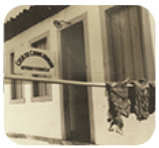
1957
Moves to Brasília (DF).
The beginning of the construction of Brasília, in the Federal District, one of the landmarks of the government of president Juscelino Kubistchek, created growth opportunities for many Brazilians.
José Batista became one of the first suppliers of beef to the construction sites that gave rise to the federal capital.


1970
Acquisition of the first meatpacking plant and the birth of the Friboi name
When the construction of Brasília (DF) ended, the Company’s founder saw the opportunity to expand his business by purchasing the first beef cattle processing plant in Formosa (GO). This was the first time that the Company operated a unit of the Federal Inspectorate Service (SIF).
It was then that the Friboi brand appeared, a name derived by combining the words “frigorifico” and “boi.”
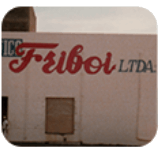
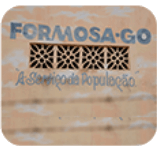
1980
Acquisition of the Planaltina-DF unit
The purchase of the unit in Planaltina (DF) marked the expansion of processing from 100 to 300 animals per day, allowing sales to be expanded to southern and southeastern regions of Brazil.
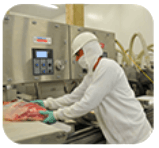
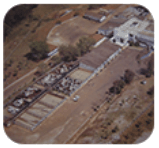
1988
Acquisition of the Luziânia-GO unit
Having sold the Planaltina-DF unit, he built a soap factory. Three years went by and the passion for the beef industry was too strong to resist. This motivated the acquisition of a new unit in Luziânia (GO).
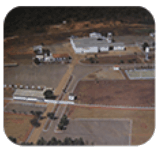
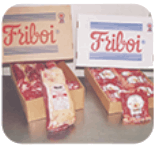
1993
Unit in Anápolis (GO), the first to have a deboning room.
To increase production capacity, the company leased and then purchased from Grupo Bordon the unit in Anápolis (GO).
This initiative represented a major step, since it was there that the first deboned beef was commercialized.
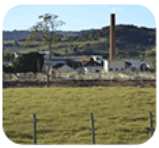

1996
Acquisition of the unit in Goiânia (GO) and the start of exports.
The purchase of the unit in Goiânia (GO) from Anglo opened the doors to the overseas market for the company’s products, with its first exportation.

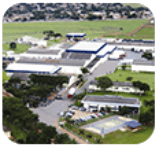
1997
Acquisition of the unit at Barra dos Garças (MT) and the beginning of the foundations of the JBS management system.
It was at the Barra dos Garças (MT) unit that the foundations of the JBS management system were laid. The deployment of these tools enhanced the company’s ability to operate its plants distributed across Brazil.
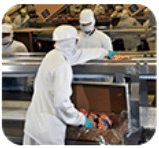
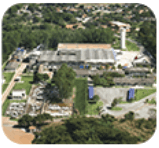
1999
Acquisition of the Andradina (SP) unit.
JBS debuts in the processed foods business, enabling it to enter the US market. It was also the company’s first plant in the State of São Paulo.
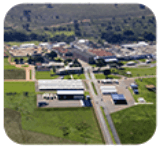
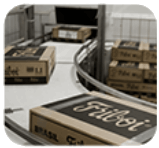
2004
Installation of the corporate headquarters in the city of São Paulo (SP).
JBS debuts in the processed foods business, enabling it to enter the US market. It was also the company’s first plant in the State of São Paulo.


2005
Acquisition of Swift in Argentina.
The company set its internationalization process in motion after acquiring the operations of Swift Armour in Argentina, that country’s largest and best-known brand in the industry.

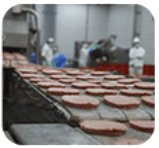
2007
The company goes public and acquires Swift in the United States and Australia.
The year 2007 was one of transformation. JBS listed on the São Paulo Stock Exchange in the largest IPO ever registered up until then on the domestic market. The company then took the name JBS in honor of its founder, José Batista Sobrinho.
That same year, JBS acquired Swift in the United States and Australia. This was a leap in the internationalization of the company, which began operating pork and lamb processing units.

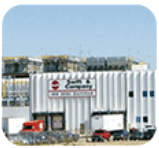
2008
Expansion of the overseas business and consolidation as the meat industry leader.
JBS acquires the Tasman Group in Australia; Smithfield Beef, the beef division of Smithfield Foods in the USA; and the feedlots of Five Rivers, with an annual capacity of two million animals.

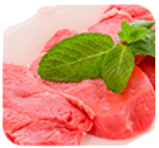
2009
Acquisition of Pilgrim’s in the United States and the takeover of Bertin in Brazil.
By acquiring shareholding control of Pilgrim’s Pride, JBS highlighted its entry into the chicken-based poultry and prepared foods sector.
And in Brazil, the takeover of Bertin consolidated the Company’s position as the leading company in the beef segment. The operation opened the doors to the wet blue and semi-finished hides processing industry, as well as other core business-related operations.

2009
Acquisition of Pilgrim’s in the United States and the takeover of Bertin in Brazil.
By acquiring shareholding control of Pilgrim’s Pride, JBS highlighted its entry into the chicken-based poultry and prepared foods sector.
And in Brazil, the takeover of Bertin consolidated the Company’s position as the leading company in the beef segment. The operation opened the doors to the wet blue and semi-finished hides processing industry, as well as other core business-related operations.

2011
Growth in the European market.
JBS acquires Italian sausage company Rigamonti.

2012
New investments in the United States market and expansion of beef cattle processing capacity in Brazil.
In the USA, JBS raises its equity stake in Pilgrim’s Pride, reaffirming its belief in the potential of the country’s chicken meat industry.
In Brazil, it expands its annual beef cattle processing capacity by 2 million head and commences operations in the poultry segment, expanding its global production capacity by 15% by leasing assets of Frangosul.

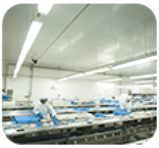
2014
Expansion of the poultry operations in Brazil and Mexico.
JBS acquires the poultry operations of the company Tyson in Brazil and Mexico.

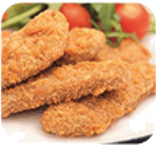
2013
Strengthening of the Company in the prepared foods segment; global leadership in leather processing; additional expansion in North America.
The acquisition of Seara firmly established JBS as one of the leading companies in the poultry, pork and prepared foods industry in the Brazilian market.
JBS also acquires Zenda, leather industry leader headquartered in Uruguay and with operations in several countries. This purchase makes JBS the world’s largest leather processing company.
In North America, JBS acquires the assets of XL Foods in the USA and Canada.

2015
A year of robust expansion and international consolidation: Australia, Europe and The United States.
The Company acquired Primo Smallgoods, Australian market leader; Moy Park, marking progress in constructing the platform for producing and distributing JBS prepared products in Europe; and the pork operations of Cargill in the USA, which positioned JBS as the second-largest pork processing company on the American market.

2016
Acquisition of Gold’n Plump.
Pilgrim’s acquires GNP, a high value-added chicken products company with a nationwide presence in the USA. The acquisition enabled JBS to expand its production and its customer base geographically, in addition to an extensive organic-certified product portfolio.

2015
A year of robust expansion and international consolidation: Australia, Europe and The United States.
The Company acquired Primo Smallgoods, Australian market leader; Moy Park, marking progress in constructing the platform for producing and distributing JBS prepared products in Europe; and the pork operations of Cargill in the USA, which positioned JBS as the second-largest pork processing company on the American market.

2019
Acquisitions in the United Kingdom and Brazil: Tulip and Marba.
Pilgrim’s closes the acquisition of Tulip, a leading pork producing company with operations in the United Kingdom. The purchase makes PPC leader in protein and prepared foods in Europe.
In Brazil, in line with the Company’s strategy of expanding its market share in higher value-added products, Seara acquires Marba, one of the most traditional brands in the cold cuts and sausage segment and a reference in the Bologna sausage segment in São Paulo.
That same year, Seara also launches the Incrível range, with the option of 100% plant-based foods.


2020
Launch of important projects for the strategy of the JBS business units.
During the year, JBS rolls out the Good Deeds Do Good program dedicated to engaging in high-impact transformative and social support actions.
The year 2020 also saw the launch of the JBS Fund for the Amazon dedicated to promoting and financing initiatives and projects whose aim is the sustainable development of the Amazon Biome.
In addition, through Seara, JBS acquires the margarine and mayonnaise assets of Bunge in Brazil, while JBS USA concludes the acquisition of a shareholder interest in the Empire Packing Company, L.P.

2021
Programs and projects to perpetuate the Company.

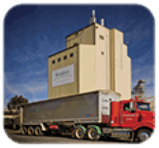
2022
Expansion of investments in new segments.
JBS USA announces the acquisition of TriOak Foods, boosting the company’s ability to provide high-quality pork products.
Conclusion of the acquisition of a majority shareholding in BioTech Foods. The Company also announces having chosen the city of Florianópolis (SC) for the JBS Biotech Innovation Center, a center for research, development and innovation in the biotechnology of food and cultivated protein in Brazil.

2023
70 years of history.
JBS is celebrating its 70th birthday. A company that began as a small butcher’s shop in the inland city of Anápolis, in the state of Goiás is, today, one of the world’s largest food companies.
Also in 2023, JBS is evolving its brand. A process of evolution reflecting the present moment: a multi-protein, multi-geography dynamic company focused on the future.

